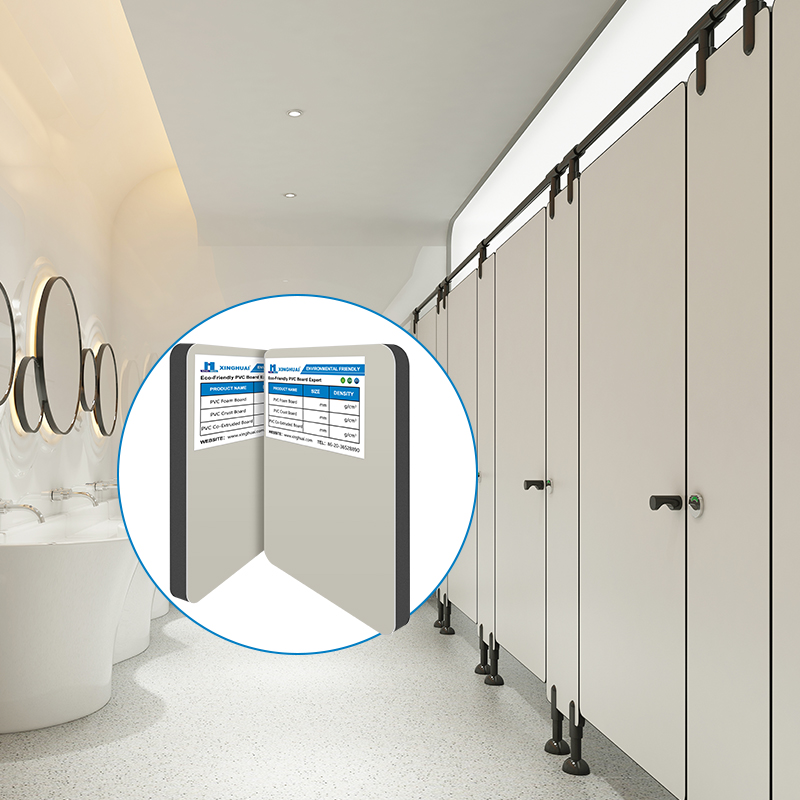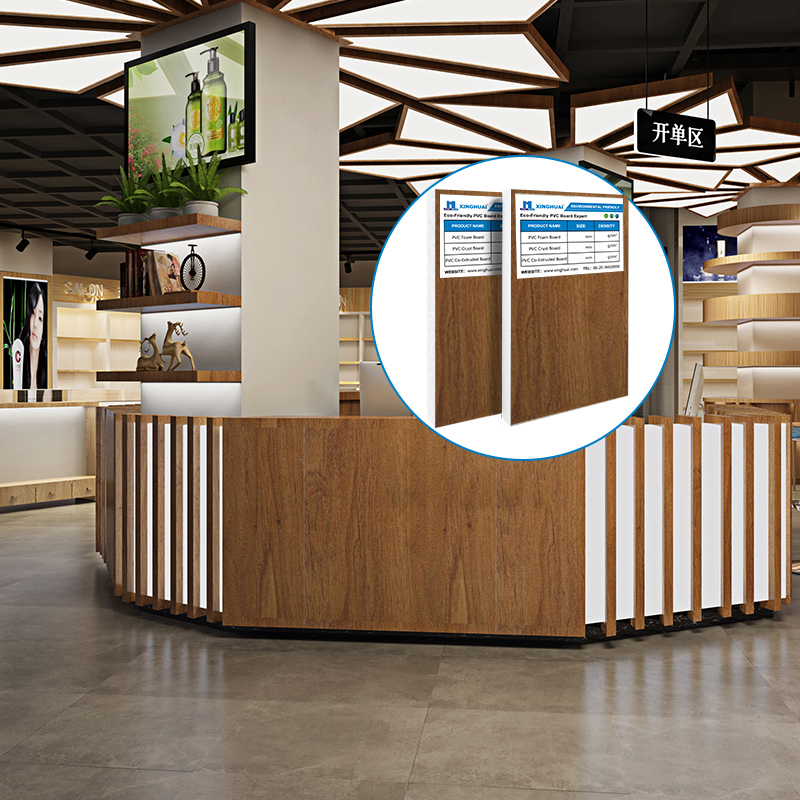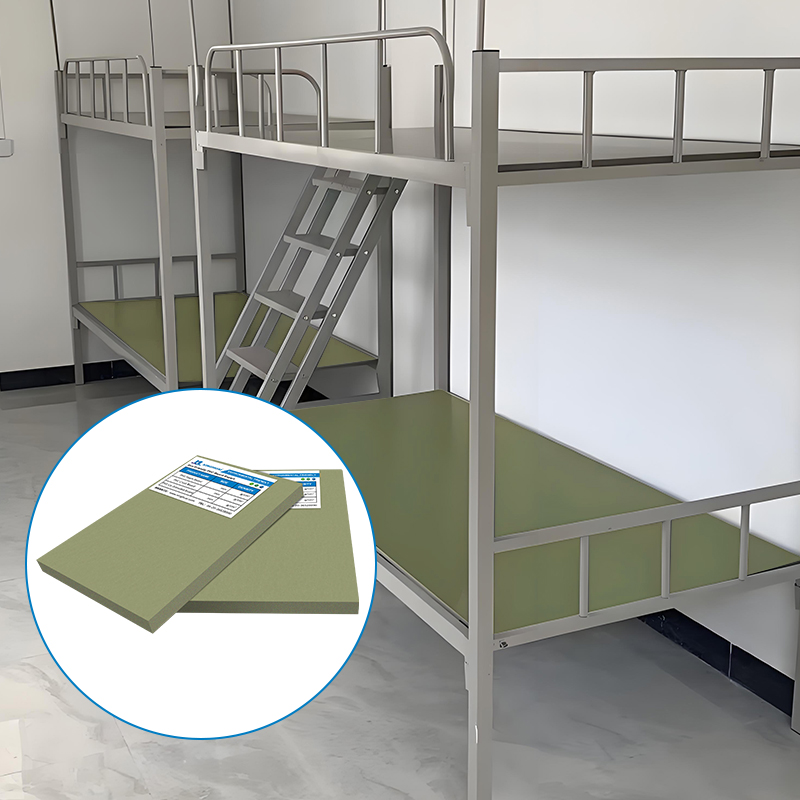What is the Production Process of PVC Sheets? A Comprehensive Guide
PVC (Polyvinyl Chloride) sheets are widely used in construction, signage, interior design, and industrial applications due to their durability, lightweight nature, and versatility. The production process of PVC sheets varies depending on the type, such as black pvc board, pvc foam board 4x8, pvc laminated foam board, laminated pvc ceiling, and extruded foam board. This article explores the manufacturing steps, techniques, and technologies involved in producing these PVC sheet variants, emphasizing their unique characteristics and applications.
1. Overview of PVC Sheet Production
The production of PVC sheets typically involves the following key stages:
Raw Material Preparation
Mixing and Compounding
Extrusion or Foaming
Lamination (if applicable)
Cooling and Shaping
Cutting and Finishing
Quality Control and Packaging
2. Production Process for Different PVC Sheet Types
A. Black PVC Board
Black pvc board is a solid, rigid PVC sheet often used for signage, furniture, and industrial applications. Its production involves:
Raw Materials: PVC resin, stabilizers, pigments (carbon black for color), and lubricants.
Mixing: PVC resin and additives are blended in a high-speed mixer to ensure uniform distribution.
Extrusion: The mixture is fed into an extruded foam board or solid extruder, where it is heated, melted, and forced through a die to form a continuous sheet.
Cooling: The extruded black pvc board is cooled using water baths or air chillers to solidify.
Cutting: The cooled sheet is trimmed and cut to standard sizes, such as pvc foam board 4x8 (4 feet × 8 feet).
Surface Treatment: Optional processes like sanding or polishing may enhance the black pvc board’s finish.
Applications:
Black pvc board is popular for outdoor signage, retail displays, and industrial partitions due to its UV resistance and sleek appearance.
B. PVC Foam Board 4x8
Pvc foam board 4x8 is a lightweight, rigid foam PVC sheet commonly used in advertising, construction, and DIY projects. Its production involves:
Foaming Agents: Chemical blowing agents (e.g., azodicarbonamide) are added to the PVC mixture to create a cellular structure.
Extrusion: The foamed PVC is extruded through a die, expanding into a foam board.
Calibration: The pvc foam board 4x8 is passed through calibrators to ensure uniform thickness and smooth surfaces.
Cooling and Cutting: The foam board is cooled and cut into standard pvc foam board 4x8 sizes.
Advantages:
Pvc foam board 4x8 is moisture-resistant, easy to cut, and ideal for large-scale signage or wall cladding.
C. PVC Laminated Foam Board
Pvc laminated foam board combines a PVC foam core with a protective or decorative laminate layer. Its production involves:
Foam Core Production:
Similar to pvc foam board 4x8, the core is extruded and foamed.
Lamination Process:
A decorative or protective film (e.g., vinyl, PET, or acrylic) is applied to the foam core using heat and pressure.
For laminated pvc ceiling, the laminate may include patterns like wood grain or marble.
Bonding: Adhesives ensure strong adhesion between the foam core and laminate.
Trimming and Finishing: Excess laminate is trimmed, and edges are sealed.
Applications:
Pvc laminated foam board is used for laminated pvc ceiling tiles, wall panels, and furniture due to its aesthetic appeal and durability.
D. Laminated PVC Ceiling
Laminated pvc ceiling is a specialized pvc laminated foam board designed for ceiling installations. Its production includes:
Customized Laminates: The foam core is laminated with moisture-resistant, fire-retardant, or sound-absorbing films.
Lightweight Design: Laminated pvc ceiling panels are engineered to be lightweight for easy installation.
Edge Finishing: Tongue-and-groove or click-lock edges simplify assembly.
Benefits:
Laminated pvc ceiling is cost-effective, easy to clean, and resistant to mold and humidity.
E. Extruded Foam Board
Extruded foam board is a rigid, closed-cell PVC foam sheet produced via a continuous extrusion process. Its production involves:
Material Compounding:
PVC resin, foaming agents, and stabilizers are mixed.
Extrusion:
The mixture is heated and forced through a die under high pressure, expanding into a foam board.
Cooling and Sizing:
The extruded foam board is cooled and calibrated to precise dimensions.
Surface Treatment:
Smooth or textured surfaces can be achieved via die design or post-processing.
Comparison with PVC Foam Board 4x8:
Extruded foam board typically has a denser, more uniform cellular structure than pvc foam board 4x8, making it stronger and more dimensionally stable.
3. Key Differences in Production Processes
PVC Sheet Type
Key Production Steps
Unique Features
Black PVC Board Extrusion, pigment addition, cooling, cutting Solid, rigid, UV-resistant, and sleek finish
PVC Foam Board 4x8 Foaming, extrusion, calibration, cooling, cutting Lightweight, moisture-resistant, and easy to cut
PVC Laminated Foam Board Foam core production, lamination, bonding, trimming Decorative, protective, and versatile
Laminated PVC Ceiling Customized lamination, edge finishing, sizing Moisture-resistant, fire-retardant, and easy to install
Extruded Foam Board Continuous extrusion, foaming, cooling, sizing Denser, closed-cell structure, high strength
4. Quality Control in PVC Sheet Production
Density Testing: Ensures pvc foam board 4x8 and extruded foam board meet weight and strength specifications.
Thickness Uniformity: Critical for laminated pvc ceiling panels to fit properly.
Surface Finish: Checks for smoothness, blemishes, or laminate adhesion in pvc laminated foam board.
Color Consistency: Ensures uniform black color in black pvc board.
5. Environmental and Safety Considerations
Recycling: Many manufacturers use recycled PVC in pvc foam board 4x8 and extruded foam board production.
Emission Control: Volatile organic compounds (VOCs) are minimized during lamination and extrusion.
Fire Safety: Laminated pvc ceiling may include fire-retardant additives to comply with building codes.
6. Applications of PVC Sheets
Signage and Advertising: Black pvc board and pvc foam board 4x8 are ideal for outdoor displays.
Interior Design: Laminated pvc ceiling and pvc laminated foam board add aesthetic value to walls and ceilings.
Construction: Extruded foam board is used for insulation, cladding, and partitions.
Furniture: Black pvc board and pvc foam board 4x8 are used for cabinets, shelving, and tables.
Conclusion
The production of PVC sheets, including black pvc board, pvc foam board 4x8, pvc laminated foam board, laminated pvc ceiling, and extruded foam board, involves a combination of extrusion, foaming, lamination, and finishing techniques. Each type is tailored to specific applications, with variations in density, thickness, and surface treatment. By understanding the production process, manufacturers and users can optimize performance, durability, and aesthetics for their projects.




